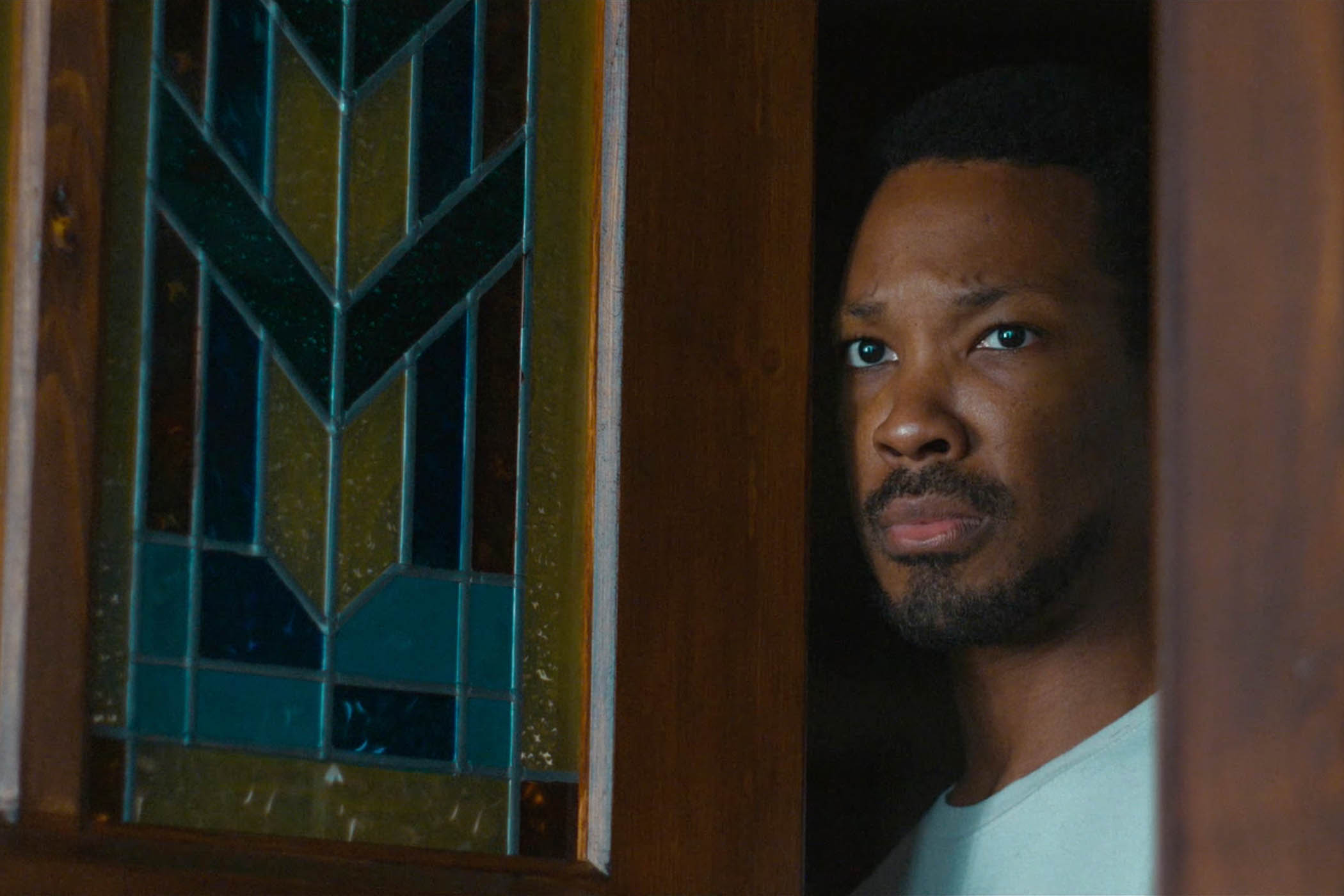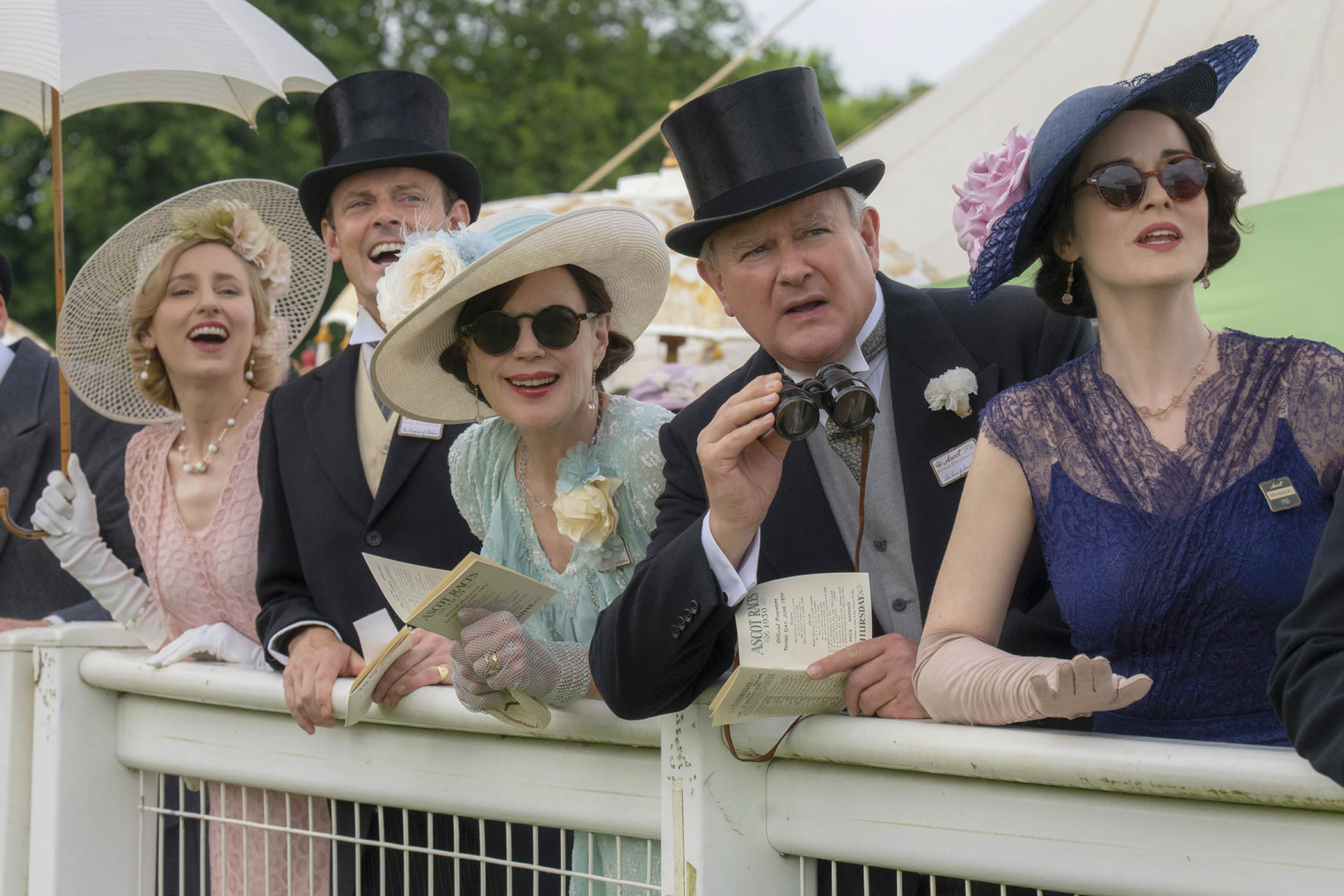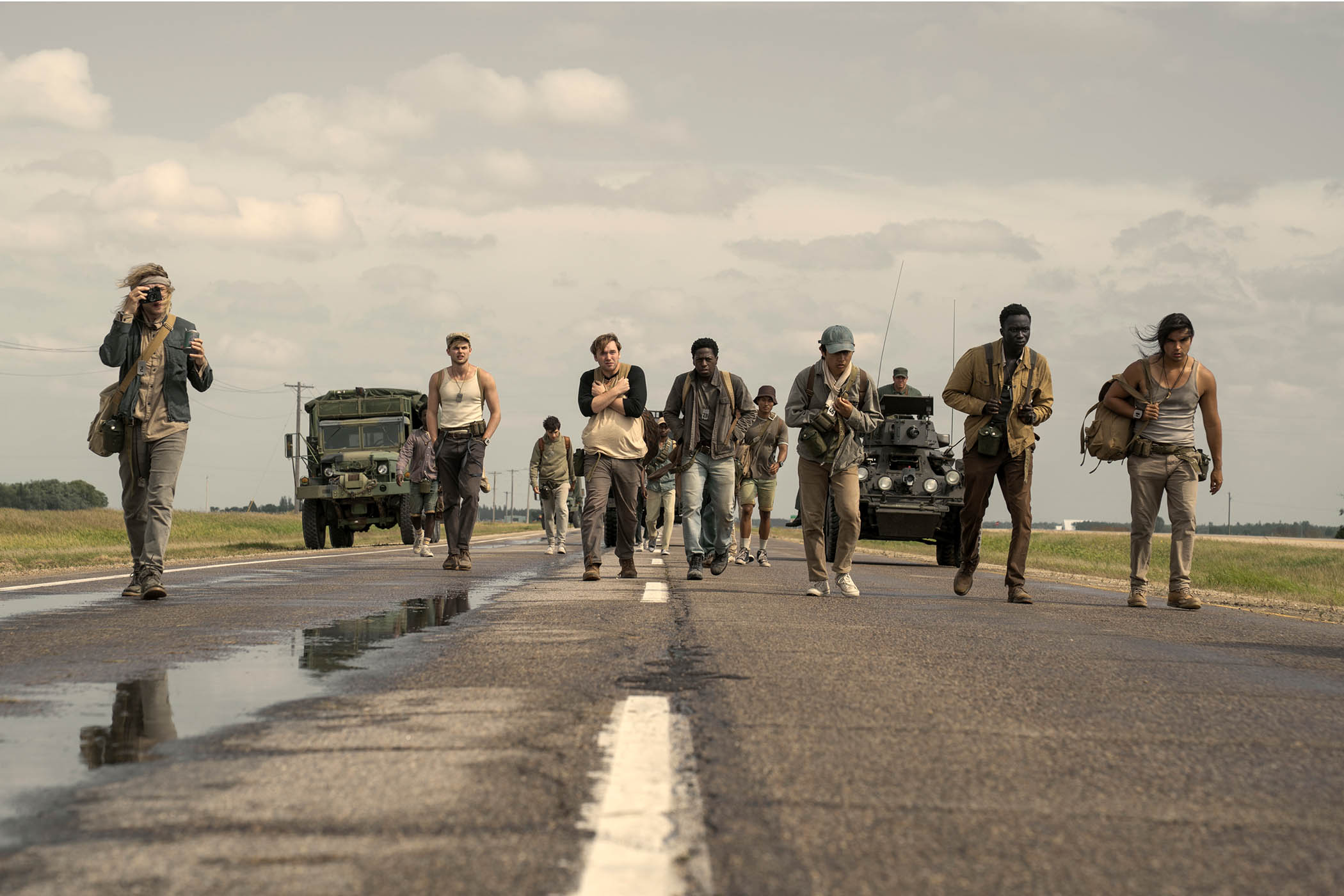The Long Walk
(108 mins, 15) Directed by Francis Lawrence; starring Cooper Hoffman, David Jonsson, Garrett Wareing
The Hunger Games director Francis Lawrence is Hollywood’s go-to guy for dystopian survival stories. The Long Walk, which is adapted from a work by Stephen King, unfolds in a near-future United States that is now a police state after a savage civil war that has stripped the country of its prosperity. Lawrence appears to have appropriated Dorothea Lange’s Depression-era dust bowl photographs as his own personal moodboard.
The Long Walk is an annual endurance test in which 50 young men from around the US are selected and made to plod across the country. They must maintain a minimum speed of three miles per hour. Any less and they get a warning; three warnings and they get their “ticket” – a bullet to the head. The last contestant standing wins unimaginable wealth and gets to make a wish.
The film is a mashup of a whole host of others: The Hunger Games and Battle Royale meet They Shoot Horses, Don’t They? and the documentary Hands on a Hard Body, with a touch of Speed thrown in. Unfortunately, all of these references are markedly more entertaining and thought-provoking than this dour slog.
Despite two solid leads, David Jonsson as Peter and Cooper Hoffman as Ray, this is essentially a film about people walking until they suffer a breakdown, organ failure or – worst of all eventualities – death by diarrhoea. To pass the time, we listen to adolescent banter, some repetitive musings on friendship, and an incongruously stirring orchestral score.
Notwithstanding the shockingly graphic splatter shots showing brains sprayed across the asphalt, this is unremittingly dull stuff.

Corey Hawkins in The Man in My Basement
The Man in My Basement
(115 mins, 15) Directed by Nadia Latif; starring Corey Hawkins, Willem Dafoe, Anna Diop
There are a lot of moving parts in Walter Mosley’s 2004 philosophical suspense novel The Man in My Basement, the story of Charles (Corey Hawkins), a young African American on the brink of losing his home, who is approached by Anniston (Willem Dafoe), a mysterious white stranger who wants to rent his basement.
In the novel there is space for the clutter of ideas to percolate and develop.
In this ambitious but muddled feature debut by Nadia Latif, however, they are as cramped and stunted as Anniston’s living space in his self-imposed prison in Charles’s cellar. The film weaves together themes of cultural heritage, guilt, the nature of evil and racial tension, and throws in some spurious supernatural elements for good measure. But in trying to include everything it ends up saying very little.
It’s a pity, because Latif shows considerable promise with her grasp of the visual language of cinema. With its aged bourbon colour palette, the film looks oppressively atmospheric, and neat visual motifs direct us downwards, to hidden secrets in the basement and, perhaps deeper still, into hell.
The Golden Spurtle
(75 mins, PG) Directed by Constantine Costi
In the Scottish Highland village of Carrbridge, porridge is serious business. Each year, contestants from around the globe travel to its annual porridge-making competition, hoping that their rib-sticking pot of putty-coloured gunk will be judged the best and they will carry home the Golden Spurtle. A spurtle, in case you were wondering, is a traditional wooden porridge stirrer. Laconic competition organiser Charlie Miller, one of many gloriously eccentric characters in this utter joy of a documentary, makes hundreds of them on his lathe during the year, to raise funds for the annual celebration.
Director Constantine Costi is better known, in his native Australia at least, as an award-winning opera director and librettist (his work includes Siegfried & Roy: The Unauthorised Opera). Not surprisingly, music – a bustling and busy orchestral score – is used very effectively here to bolster the picture’s comic tone, but the main draw is its cast of lovable characters, all playfully framed by Dimitri Zaunders’s wry and sharp-eyed camerawork.

Hugh Bonneville and Michelle Dockery in Downton Abbey: The Grande Finale
Downton Abbey: The Grand Finale
(124 mins, PG) Directed by Simon Curtis; starring Hugh Bonneville, Michelle Dockery, Paul Giamatti
The third movie spin-off from the Julian Fellowes-scripted TV series holds no surprises. The aristos smirk richly at each other; the below-stairs staff communicate in twittering platitudes; a minor social scandal (Lady Mary, played by Michelle Dockery, becomes persona non grata after her divorce) disrupts the smooth running of the establishment.
Meanwhile, any suggestion of progress is met with harrumphing umbrage from the older generation, and “Englishness” is held aloft and paraded around like a prize. It’s all tiresomely fatuous, coasting along on the familiarity of the characters and fabulousness of the frocks. On this, at least, it doesn’t disappoint.
Islands
(120 mins, 15) Directed by Jan-Ole Gerster; starring Sam Riley, Stacy Martin, Jack Farthing
Sam Riley stars as Tom, a former pro tennis player turned coach at a resort in the Canary Islands, in this slow-burning neo-noir. A decade into a sloppy, booze-sodden downward spiral, Tom is jolted out of his nihilistic stupor by the arrival of a British family. The husband, Dave (Jack Farthing), is brash and competitive; the wife, the film’s icy femme fatale, Anne (Stacy Martin), is alluring and oddly familiar. Tom guides the couple and their eight-year-old son around the island, but an unexpected turn of events throws Tom and Anne together.
Jan-Ole Gerster’s cagey thriller hints at rather than overtly reveals what links the two; the result is a teasingly elusive picture that just about sustains its tension through an overlong running time.
Photographs by Lionsgate; Disney; AP
Newsletters
Choose the newsletters you want to receive
View more
For information about how The Observer protects your data, read our Privacy Policy

